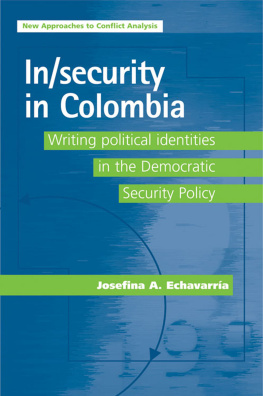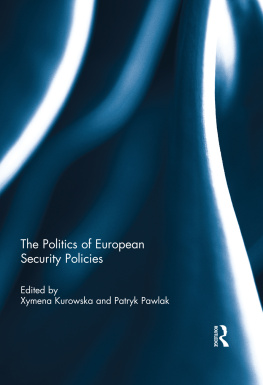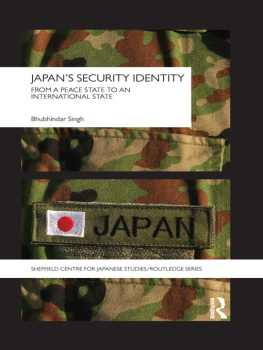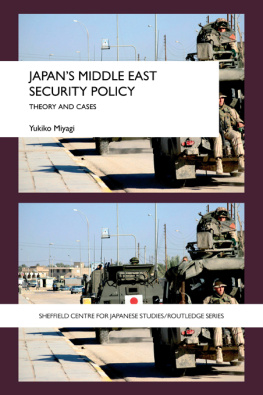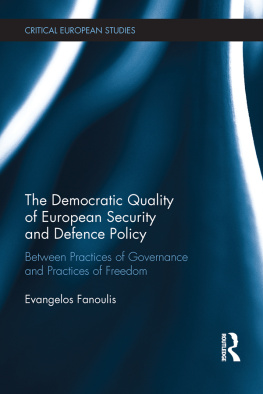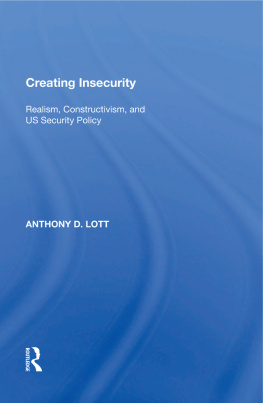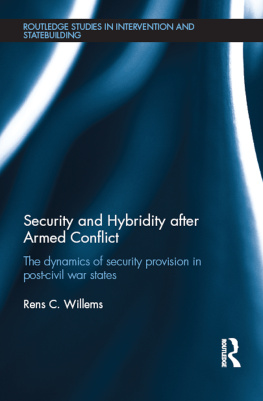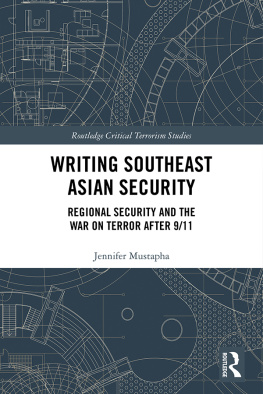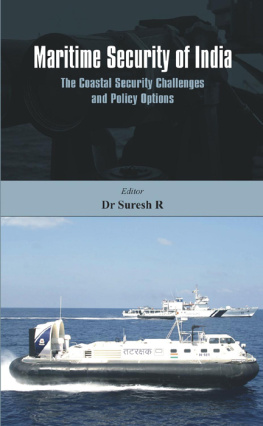IN/SECURITY IN COLOMBIA
New Approaches to
Conflict Analysis
Series editor: Peter Lawler, Senior Lecturer in International Relations, Department of Government, University of Manchester
Until recently, the study of conflict and conflict resolution remained comparatively immune to broad developments in social and political theory. When the changing nature and locus of large-scale conflict in the post-Cold War era is also taken into account, the case for a reconsideration of the fundamentals of conflict analysis and conflict resolution becomes all the more stark.
New Approaches to Conflict Analysis promotes the development of new theoretical insights and their application to concrete cases of large-scale conflict, broadly defined. The series intends not to ignore established approaches to conflict analysis and conflict resolution, but to contribute to the reconstruction of the field through a dialogue between orthodoxy and its contemporary critics. Equally, the series reflects the contemporary porosity of intellectual borderlines rather than simply perpetuating rigid boundaries around the study of conflict and peace. New Approaches to Conflict Analysis seeks to uphold the normative commitment of the fields founders yet also recognises that the moral impulse to research is properly part of its subject matter. To these ends, the series is comprised of the highest quality work of scholars drawn from throughout the international academic community, and from a wide range of disciplines within the social sciences.
PUBLISHED
Christine Agius
Neutrality, sovereignty and identity:
the social construction of
Swedish neutrality
Eref Aksu
The United Nations, intra-state
peacekeeping and normative change
M. Anne Brown
Human rights and the borders of
suffering: the promotion of human rights
in international politics
Anthony Burke and Matt McDonald (eds)
Critical security in the Asia-Pacific
Lorraine Elliott and Grame Cheeseman (eds)
Forces for good:
Cosmopolitan militaries
in the twenty-first century
Greg Fry and Tarcisius Kabutaulaka (eds)
Intervention and state-building
in the Pacific: the legitimacy
of cooperative intervention
Richard Jackson
Writing the war on terrorism:
language, politics
and counter-terrorism
Tami Amanda Jacoby and Brent Sasley (eds)
Redefining security in the Middle East
Jan Koehler and Christoph Zrcher (eds)
Potentials of disorder
David Bruce MacDonald
Balkan holocausts?
Serbian and Croatian victim-centred
propaganda and the war in Yugoslavia
Adrian Millar
Socio-ideological fantasy and the
Northern Ireland conflict: the other side
Jennifer Milliken
The social construction of the Korean War
Ami Pedahzur
The Israeli response to Jewish
extremism and violence:
defending democracy
Maria Stern
Naming insecurity constructing identity:
Mayan-women in Guatemala
on the eve of 'peace'
Virginia Tilley
The one state solution: a breakthrough
for peace in the IsraeliPalestinian deadlock
In/security in Colombia
Writing political identities in the Democratic Security Policy
JOSEFINA ECHAVARRIA A.
Copyright Josefina Echavarria A. 2010
The right of Josefina Echavarria A. to be identified as the author of this work has been
asserted by her in accordance with the Copyright, Designs and Patents Act 1988.
Published by Manchester University Press
Oxford Road, Manchester M13 9NR, UK
and Room 400, 175 Fifth Avenue, New York, NY 10010,
USA www.manchesteruniversitypress.co.uk
Distributed exclusively in the USA by
Palgrave Macmillan, 175 Fifth Avenue, New York,
NY 10010, USA
Distributed exclusively in Canada by
UBC Press, University of British Columbia, 2029 West Mall,
Vancouver, BC, Canada V6T 1Z2
British Library Cataloguing-in-Publication Data
A catalogue record for this book is available from the British Library
Library of Congress Cataloging-in-Publication Data applied for
ISBN 978 0 7190 7985 6
First published 2010
The publisher has no responsibility for the persistance or accuracy of URLs for any external or third-party internet websites referred to in this book, and does not guarantee that any content on such websites is, or will remain, accurate or appropriate.
Typeset in the UK
by Helen Skelton, Brighton
Printed in the UK
by the MPG Books Group
For Norbert
Contents
Preface
This book offers a political reading of how the in/security discourse of the Colombian government, named the Democratic Security Policy (DSP), does the identities of state, nationals and others. I investigate how, by naming the danger of narco-terrorism as posing a vital threat to the state and its people, the DSP creates ideal identity categories. Subjects are hailed as constituents of these categories via multiple practices that summon them to occupy the positions of a strong sovereign state, good nationals united in the front against narco-terrorism and terrorists, respectively. This book examines the Colombian case study by referring to critical security insights that ask unauthorised questions (Dillon, 1996) about the violence prompted when ambiguous, fluid and changing identities are forced to fit neat pictures of seemingly coherent and unproblematic referent objects and subjects of in/security discourses (Stern, 2005).
Following Stuart Hall (1996a), I understand the process of identification as an imperfect articulation, which requires that subjects perform their identities. Looking for different ways in which disparate subjects reinforce, contest or resist the logic of in/security, I analyse the responses and provocations that are expressed in the discourses of the guerrillas known as the FARC-EP, the nonviolent plan of the Province of Antioquia and the nonviolent movement of the indigenous group Paeces del Cauca. My intention is to underscore the multiple ways in which others, the state itself and nationals react to, reinforce or contest the logic of in/security that the DSP inscribes. By looking at these diverse responses, I intend to underscore how the grammars of harm of discourses on safety/danger (Stern, 2005) can be reproduced or disrupted in marginal settings.
My contention is that by producing fixed, coherent and secure identities, state and non-state political violence is legitimised. In the name of in/security, spaces and times for many peaces (Dietrich and Stzl, 2006) and politics are closed down, since encountering and connecting with others can bring about unknown possibilities for becoming something/somebody different from the fixed subjects of the DSP. In this way, I attempt to show that the writing of in/security implies the writing of peace and war and attendant notions of identity. Ultimately, writing in/security is about political imaginaries (Campbell, 1998).
The concrete forms in which these concepts and practices inform each other in the Colombian conflict offer insights into the often-violent relations that render the pursuit of both peace and security so very problematic. Hence, in the last section, I venture into presenting a collection of international relations (IR), politics and peace studies readings that embrace the impossibility of securing subjectivities by accepting fragility and vulnerability. These readings call for the opening of possibilities for becoming, rather than being (Hall, 1996a), and for recognising uncertainty as fundamental to experiencing more peaceful ways of relating to each other. In short, this final section considers calls for imagining otherwise (Butler, 2004).

